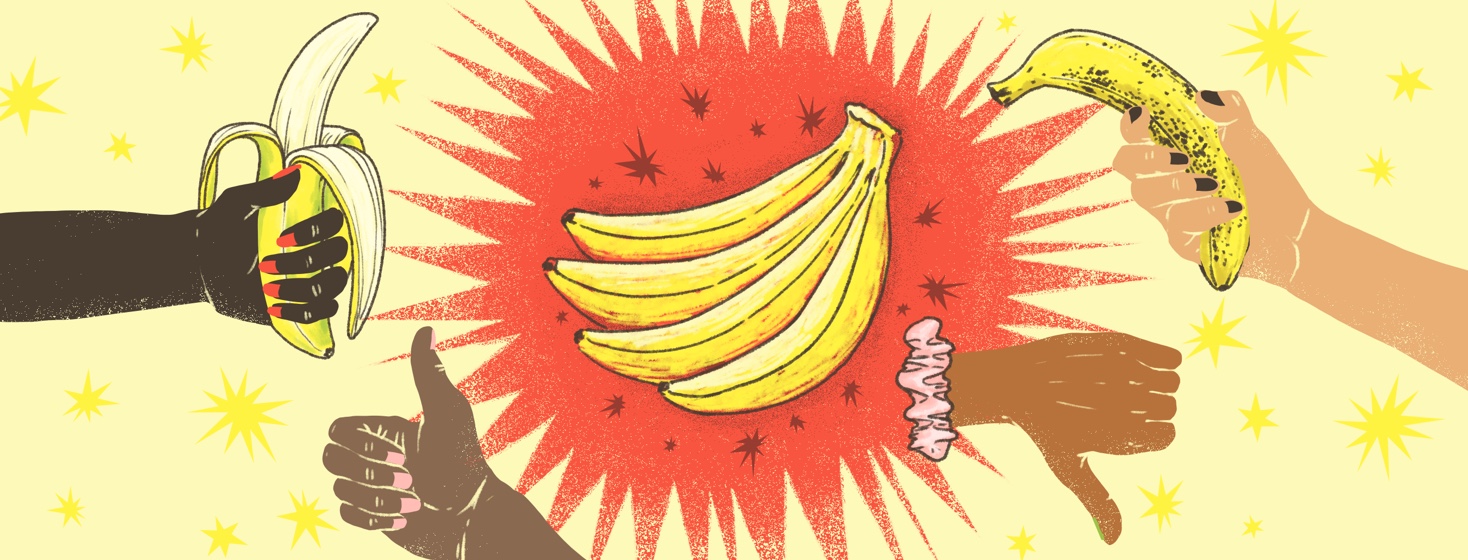Bananas Are The Best (At Least Most of the Time)!
Early on in my IBS journey, I learned to quickly find those few foods that never really triggered me and for the most part, was relatively benign. Even before I developed and was diagnosed with IBS, my grandmother always fed me bananas as a child when I was having GI issues, particularly diarrhea. She told me they were "binding." Well, I noticed in college when I could keep nothing else down or in me, that bananas were one of the only foods I could eat without contributing to worsening symptoms.
When I finally started getting a handle on my IBS and formulating a diet that avoided trigger foods and emphasized more healing foods, bananas topped my list.
Bananas as a source of fiber
I later found a website devoted to IBS that had bananas on their "good list" because it's chock-full of soluble fiber, which is very beneficial for IBS. I now begin each day with a banana for breakfast (along with another soluble fiber-enriched safe food: oatmeal. I find starting the morning off with this food staple helps set the precedent for the rest of the day. While I usually only eat one banana in the morning most days, I will also a second banana during the day if I am having a flare. I also tend to eat several bananas during the days I have my period, as it's one of the few foods that I can tolerate when I am bleeding and that doesn't make my cramps worse or instigate intestinal distress.
However, not all bananas are equal in quality when it comes to their potential benefits for IBS. I had noticed when a banana is older and mushier and has a lot of brown spots, I can barely swallow it as it makes me gag. I've also noticed bananas in that shape generally do not stave off my IBS and even sometimes seem to make it worse. Generally, I do best with bananas that are a little under-ripe or just coming into ripeness. Once they get overly ripe, they just aren't very good for me.
Bananas and the low FODMAP diet
I thought this was my imagination. However, I then read a 2017 study out of Monash University that found that the FODMAPs in bananas change according to ripeness. Specifically, ripe and overly ripe bananas are high FODMAP, while under-ripe bananas are low FODMAP. This could explain the difference in the impacts bananas of different ripeness have on me and my IBS.1
Additionally, the study found that even for those under-ripe or just-ripe bananas, it's best to opt for small or medium-sized as the large ones still might have too many fructans (which are high FODMAP), and can bother individuals with IBS. Since reading this study, I've been more conscientious about the size of the bananas I buy and I tend to buy them when they are still green or just yellowing.
Do bananas help your IBS or are they part of your IBS-diet? Why or why not? Please answer in the comments section below!

Join the conversation